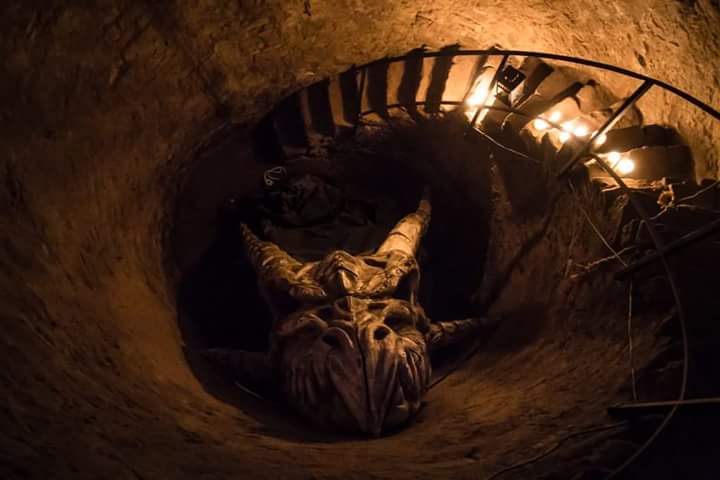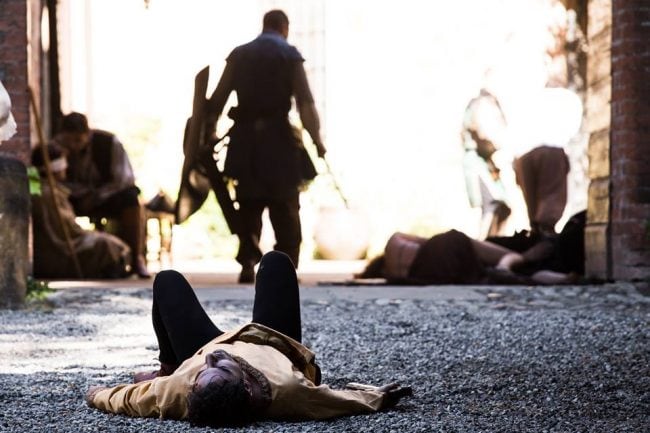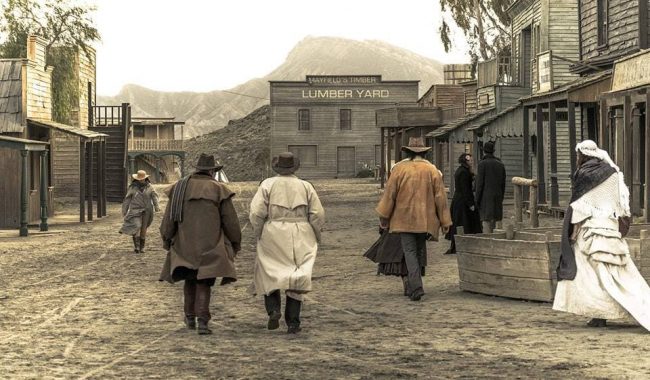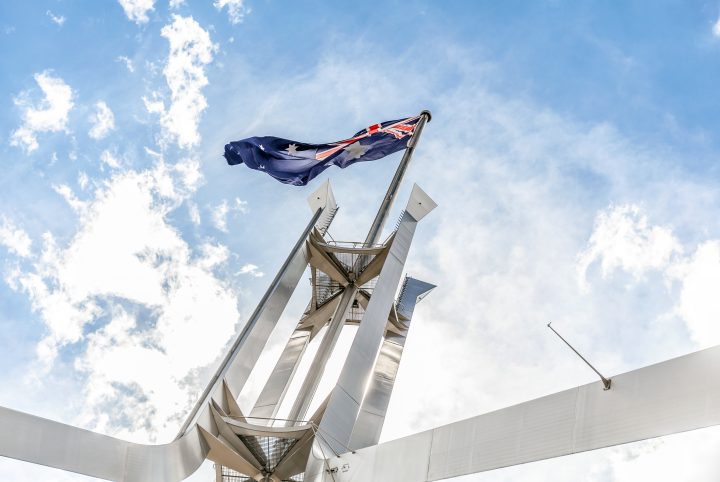
Some people love the other-world experience of LARP – live action role play – until the lines of reality and fantasy start to blur or ‘bleed’ into one another.
It’s like a scene from a movie. Lords and ladies arrive at a medieval castle in their finest attire, replete with jewels and crowns, for a feast. But the celebration is not as it seems. There are murmurs afoot that there is dangerous skulduggery afoot, and the king’s life may be in danger.
But it’s not a movie. And we are not in the Middle Ages. These people are taking part in a LARP – a live-action role-play game.
LARPs are taking place all around the world.
It is becoming a popular way to indulge your fantasy of being in a particular time in history (say, Jane Austen’s Britain) or visit an alternative world such as the popular video game World of Warcraft.
Simulation experience with serious consequences
The participants choose their own adventure, they can influence the story with their decisions and the experience can last between 2-3 days.
While it may be just a simulation experience, where the participants physically portray their characters, new research shows that for some it’s a bit of a lark, for others there can be serious implications.
Dr Davide Orazi is a senior lecturer in Marketing at Monash Business School who researches consumer culture with a particular focus on gaming, role-playing, and extraordinary experiences.
In a new paper published in the Journal of Consumer Research, Dr Orazi looks at what happens after you return to your ordinary life and the experience you have just had starts to ‘bleed’ into your own reality.
“There has been a lot of research on why people join a LARP, but very little on what happens after your return from an extraordinary experience,” he explains.
“We found that the extent of the ‘bleeding’ differs depending on the individual’s subjectivity.”

Consumers want to explore situations that are not common in their everyday life by taking part in LARPs
Who takes part in LARP?
Dr Orazi says there are many motivations for consumers to take part in a LARP. Two common ones are to immerse oneself and become part of popular dramas such as Game of Thrones and Westworld and to want to add some excitement into their everyday lives by exploring situations and roles that are not common in everyday life. In other words – it’s a form of escapism.
“It’s no different from watching a movie or reading a book, you become immersed in another world and can escape from the day-to-day ordinariness of life. It adds excitement,” he says.
“But the interesting thing is that such intense, engaging, and prolonged experiences can leave a trace in everyday life. Your brain knows you are engaging in make-believe but it will still release adrenaline when attacked by a brigand, and dopamine when simulating a romance.”
Marriage break-ups are not unheard of among those who take part and ‘fall in love’ with other characters in the game.
Returning from such experiences can thus be challenging.
When reality and fantasy blur
And no two people will have the same experience. Dr Orazi suggests that the consequences of experiential consumption are likely as distinctive as its experiences.
“We needed a better understanding of what happens when consumers leave extraordinary experiences and reintegrate into everyday life, and how subjective understandings of the tension between “extraordinary” and “everyday” influence this process,” he says.
When the two worlds collide through the ‘extraordinary’ experience and ‘everyday’ there is an intermingling which Dr Orazi labels a “bleed,” a term popular among LARPers.
“Bleeding is the process through which consumers’ experience in the extraordinary seeps into the ordinary, like dye colours bleed into one another,” he says.
It’s the unpacking of the bleed that is relevant to advancing the understanding of the process by which consumers return from extraordinary experiences.

The level of transformation in your real life depends on how far you will go to create your fantasy reality.
“After an extraordinary experience, you come back to your everyday life but a trace of the experience comes back with you,” Dr Orazi says.
This could clash with your real-life and a conflict with the new normal.
The intensity of a LARP bleed
When people come back from an extraordinary experience Dr Orazi says they are likely to have one of three responses.
The level of transformation ultimately depends on how far you will go to create your fantasy reality.
“If we look at a Game of Thrones-style LARP, some of the people will really throw themselves into their character and play the role with intensity over the three days,” he says.
While others may just choose to drink in the tavern for the three days and relax, meet a few people and chill.
“The tavern drinking people will walk away, hand in their costume thinking this was a bit of fun, but generally have no transformation afterward,” he says.
“Others may really miss the world and their role. The nostalgic memories will have a greater bleed and they usually want to go back to and have the same experience again.”
Addiction and consumption
From a consumption perspective, Dr Orazi says this means that marketers have a strong potential to sell videos and books and other products to these people that will fill the void and perhaps encourage them to go back to the LARP.
But generally, they do not take place frequently enough to become addictive as some video games.
“It’s not like a video game that can be accessed ad nauseam which in terms of the transformation that takes place this is somewhere in the middle,” Dr Orazi says.
“Instead, the temporal separation between events allows time for reflection. LARP can be truly transformative and allow its participants to discover new perspectives on issues they never confronted or aspects of themselves they never imagined. It is surprising how much you can learn when you travel through time and space!”
This third level of bleed can be cathartic and lead people to make changes in their real life.
COVID-19 was an extraordinary experience
He says it’s not just role-playing where we face this phenomenon. COVID-19 is one of those ‘extraordinary’ experiences.
“We stopped for two years (in Melbourne). We could not travel, we could not leave our homes for more than an hour, we could work only via Zoom and we had to slow down and experience a different life. This gave us time to think about what changes we needed to make. The extraordinary experience can force us to make big moves. The great resignation is an example of how an extraordinary experience, in this case, global and prolonged, can expose us to different norms, logics, rhythms, and roles,” Dr Orazi says.
When that ended, we had to face the implications of clashing logic and roles between pre-and post-COVID life: couples breaking up, friendships changing, our work and jobs are different and may never be the same, and people have moved states to get away from any future lockdowns”
But, do we want to go back to normal?


